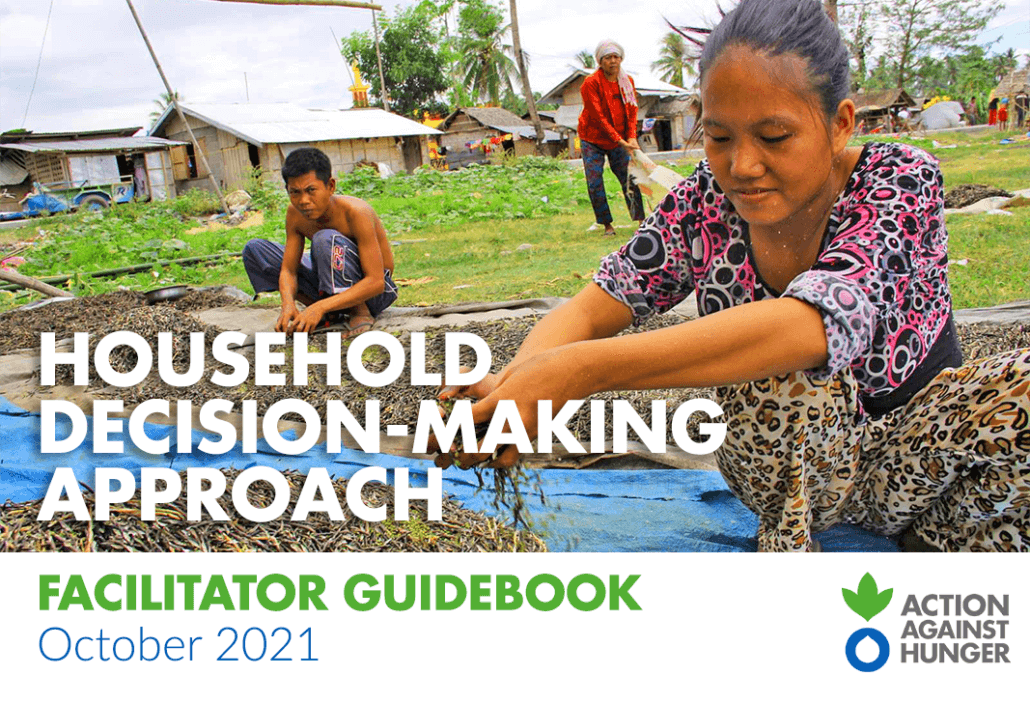Promoting inclusive household decision-making to empower rural women
MINDANAO — Women and girls in rural communities have been providing invaluable contributions in development, particularly towards nutrition, food security, and building climate resilience. However, gender and development indicators have consistently shown that rural women and girls are generally more vulnerable to poverty and the impacts of climate change as compared to rural men and women in urban communities.
In 2019, Action Against Hunger Philippines with the guidance of our International Gender Desk conducted a gender analysis within our partner communities at the Bangsamoro Autonomous Region of Muslim Mindanao (BARMM). The results of the analysis showed that roles in Mindanao seem to have changed from traditionally assigned gender roles and responsibilities, with women now being more involved in productive activities. However, this does not seem to have reduced the allotted time women dedicate to reproductive work. With women spending more time on productive tasks, but not less reproductive ones, a significant increase in their overall workload was noted.
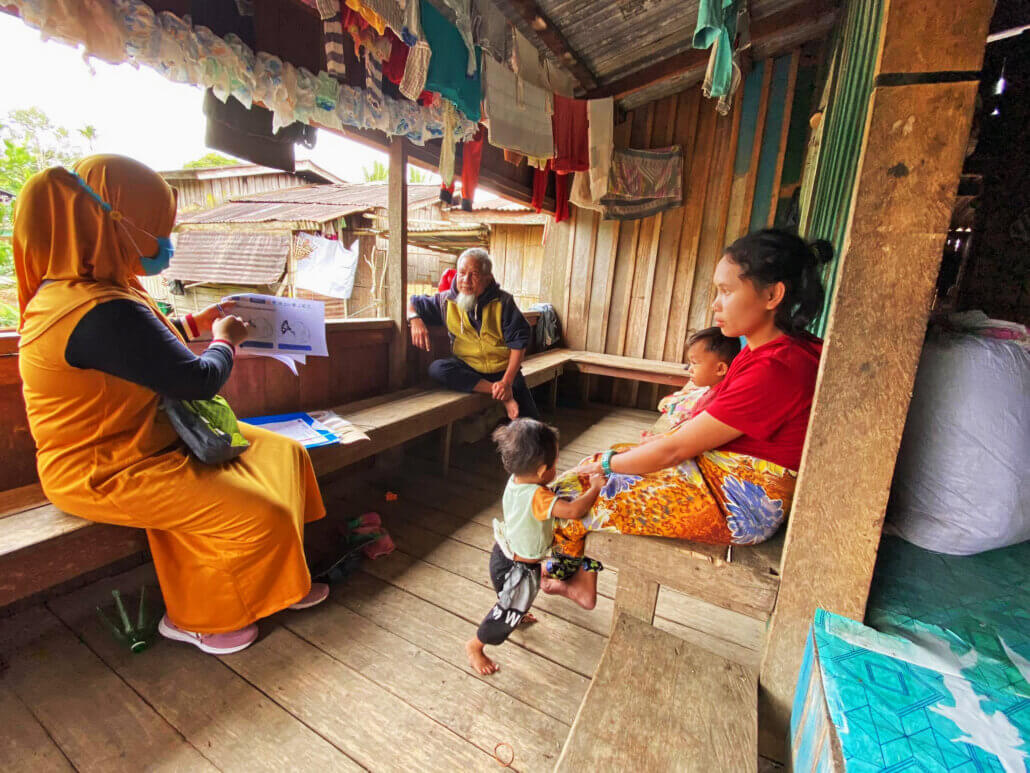
Door-to-door nutrition and hygiene promotion sessions in Lanao Del Sur | Photo by Theresa Cortes for Action Against Hunger (Lanao del Sur, Philippines © 2020)
The gender analysis also noted that although both women and men participate in income-generating activities and decide together on some key issues, key decisions like mobility, heritage, what specific work is assigned to each person, and the use of family land, etc. still fall under the decision of men. Evidently, this is one of the factors barring women’s access to income-generating activities since farming is considered the region’s main source of income. Agricultural labor like tending to the fields is mainly considered as the responsibility of men. Therefore, it comes with no surprise that men also present the highest percentages of agriculture knowledge.
Because of our commitment to mainstream gender equality in all our programs, we are aiming to maximize project outcomes while promoting gender empowerment. To do this, we plan to integrate interventions that are influencing household decision-making into existing food security & livelihoods programming.
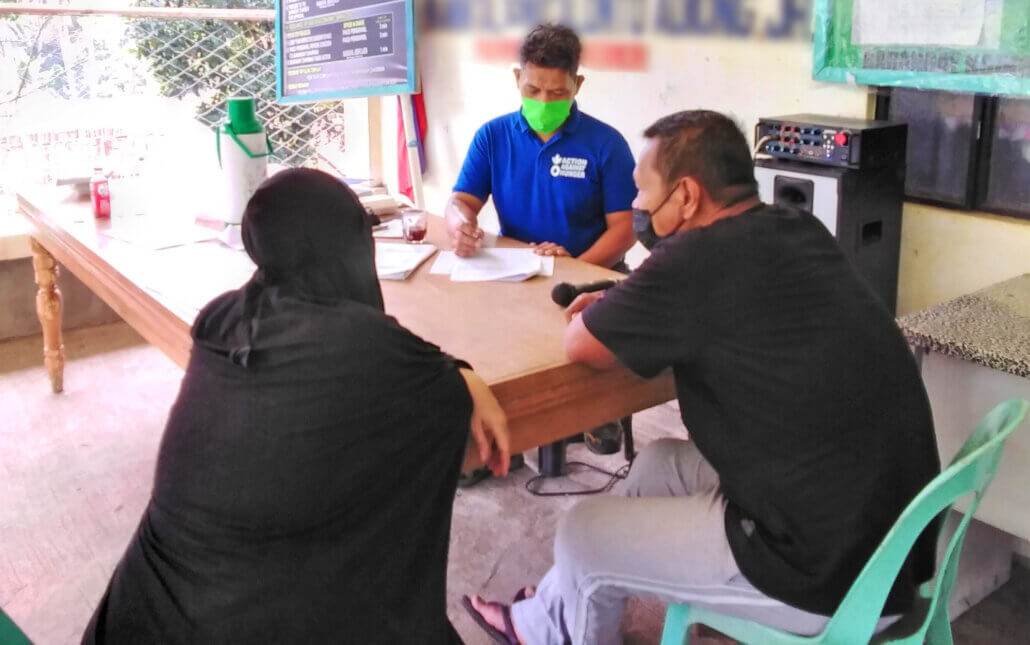
HHDM Session in Calanogas facilitated by the project team | Photo by DRR-BHA Project Team for Action Against Hunger (Calanogas, Philippines © 2021)
Household decision-making impacts child health and nutrition in multiple ways. It influences underlying causes of undernutrition: decisions related to household production, household consumption, and caregiving practices. Household decision-making can also lead to improvements in women’s mobility; control of own time and income; men’s trust, confidence, and respect for women; women’s own self-confidence; and the sharing of household chores.
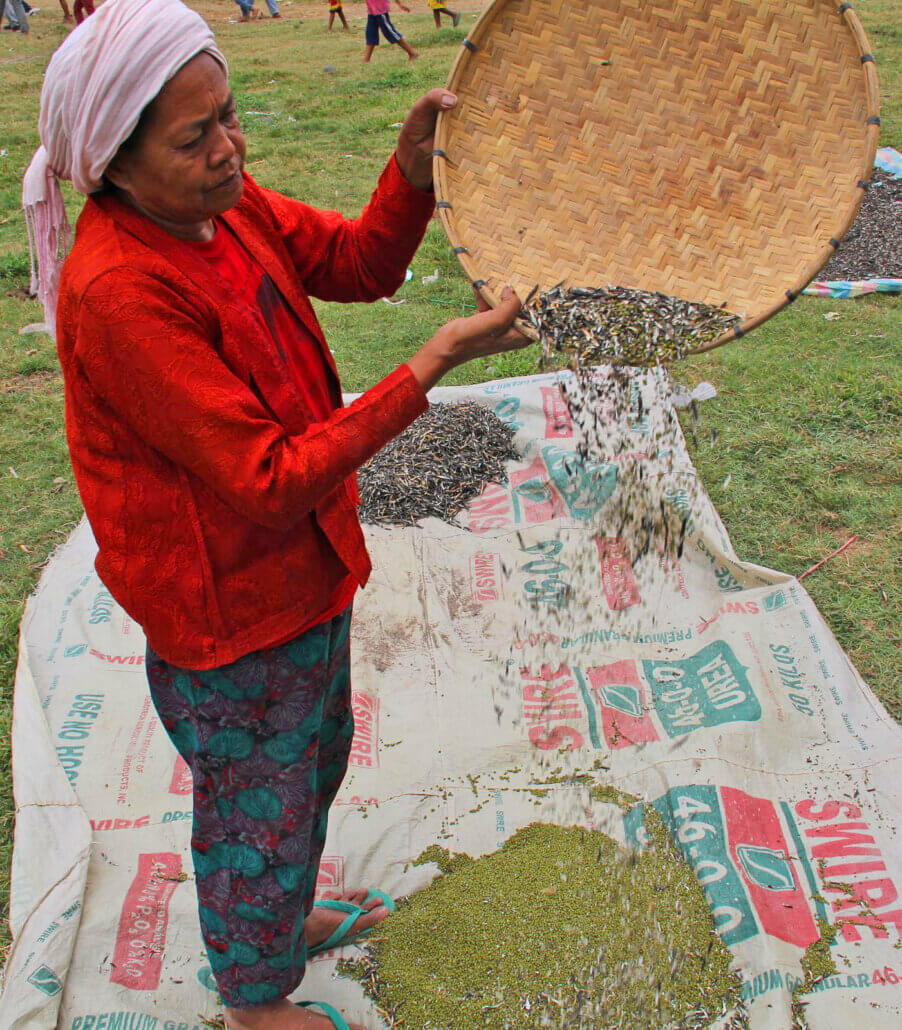
Photo by Rosa May Maitem for Action Against Hunger (Maguindanao, Philippines © 2013)
Using the Household Decision-Making (HHDM) Approach, we aim to shift household behaviors regarding decision-making and distribution of household work by spotlighting the work performed by women at reproductive and productive levels and adding more value to their contributions. The HHDM approach will hopefully encourage family members to contribute equitably—allowing each member to learn, cope, adapt and transform in the face of shocks and stresses and therefore increase household and community resilience in the long run.
“This innovative approach will enhance our FSL strategies making it more inclusive and gender transformative,” – Menchie Lacson
The HHDM approach is based on the household dialogue toolkit developed by Mercy Corps, which we’ve adapted appropriately to the context of Filipino communities, particularly in Mindanao. This was made possible through the support and guidance of Bishnu Bahadur Khatri, a seasoned international expert, and researcher on household dialogue along with human rights, child rights, social inclusion, gender-based violence, climate change, and gender equality among many others.
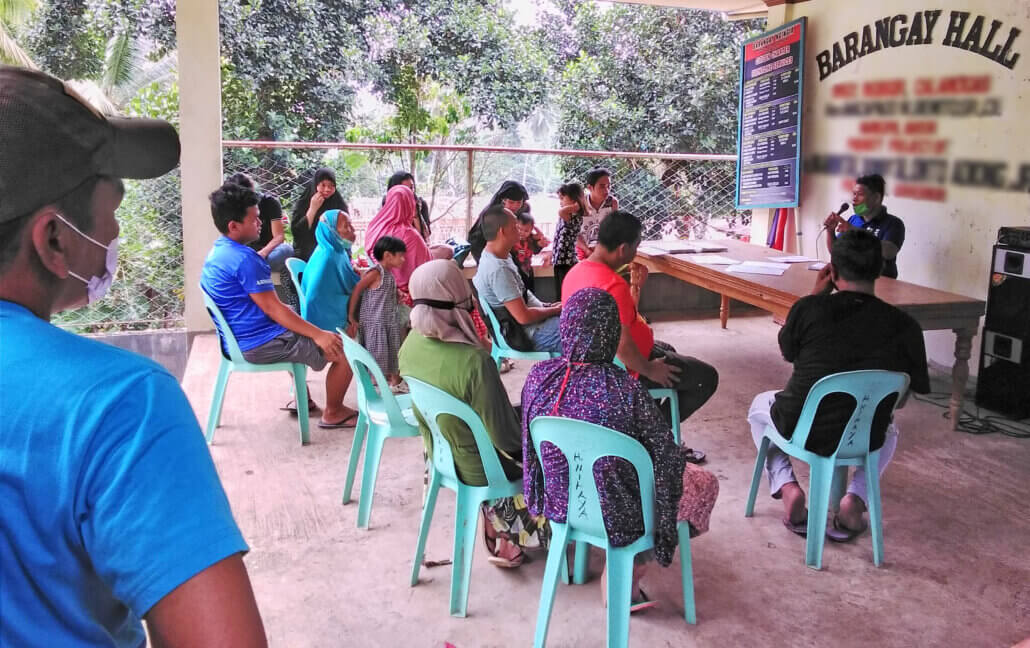
HHDM Session in Calanogas facilitated by the project team | Photo by DRR-BHA Project Team for Action Against Hunger (Calanogas, Philippines © 2021)
A Household Decision Making Approach Facilitator Guidebook is currently in the works, which we will be piloting through our USAID-funded disaster risk reduction project. In the meantime, the HHDM approach nonetheless has since been implemented following an online ‘training of trainers’ (ToT) on Family and Household Dialogue. The five-day training was facilitated by Bishnu Khatri last from April 8-12, 2021 and was participated by Action Against Hunger staff from the Philippines’ Manila head office, Cotabato field office, and international headquarters.
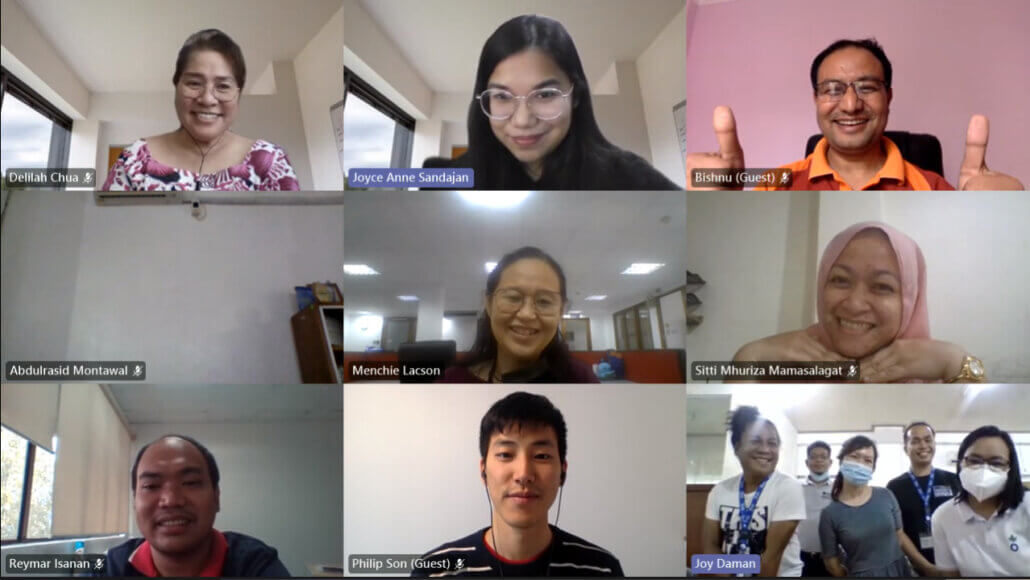
Action Against Hunger staff with Bishnu Khatri (top-right) during the last day of the HHD Training (April 12, 2021)
“This innovative approach will enhance our FSL strategies making it more inclusive and gender transformative, [We’re] grateful for your generosity in sharing your knowledge and expertise on this approach Bishnu,” says Menchie Lacson, the Food Security & Livelihoods (FSL) Coordinator and selected Gender Champion for Action Against Hunger Philippine Mission.
As we push for long-term development, we are hopeful that more women and girls in rural communities will have active involvement in decision-making and community participation through effective and inclusive household dialogues.
‘Strengthening Local Resilience and Building Capacities in Area at High Risk of Natural Hazards in BARMM, Mindanao’ is a disaster risk reduction (DRR) project funded by the United States Agency for International Development’s Bureau for Humanitarian Assistance (USAID-BHA) and implemented by Action Against Hunger.
Written by Joyce Sandajan Read more


